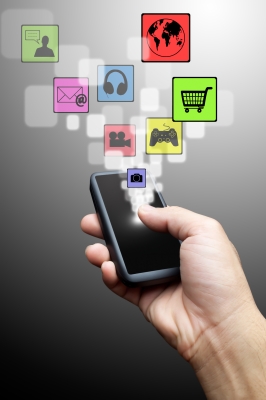The world is becoming increasingly well connected, believe it or not, there are remote islands in South East Asia that use small gasoline generators to supply their electricity but still have excellent cell phone and Wi-Fi coverage. After all, it is relatively easy to put up a tower but running power lines is much more difficult. And these days it seems that there are iPhone apps for just about everything, from entertainment and music to business and productivity and so we are relying more and more on electronic gadgets to help us communicate, navigate and calculate.

Apps are not just for business, they also help families to manage their financial monthly budget, pay bills and check out their revenue and expenses. You can link it with your bank account and get daily updates of your status and every transaction. Of course teenagers are the best connected generation that ever lived… with texting, email and internet access at their fingertips.
But is being constantly connected causing problems? The younger generation texts their friends while in the same room and is losing the ability to communicate face to face. They freak out when Twitter goes down momentarily and can’t follow directions if the GPS isn’t working. In a recent article in the Vancouver Sun they interviewed Alfred Hermida, a professor at the University of British Columbia’s Sauder School of Business, leads the integrated journalism program at UBC’s graduate school of journalism, he says,
“For the freshman class at university, it is not a case of taking over their lives, it is part of their lives. The whole idea of contemplating a world before the Internet is very alien to them. In a sense, technology becomes a part of what you do. Sometimes I ask my students to go offline for eight hours and often it is a bit of an eye-opener, after about half an hour, they are saying, ‘what do I do now? Or they will go and take a walk and they won’t be plugged into an iPod — they’ll hear birds chirping in the trees and they’ve never heard that while they’re walking.”
So although the ability to use Google any time or anywhere allows you access to information that would have been almost impossible to find in a library and the availability of apps makes almost everything easier there is a down side to being constantly connected.
See Also:
- Trends:Population, Health and Technology
- How New Technologies Are Affecting Healthcare
- New Technologies in Natural Gas
- Gadgets for Hedging Financial Risks
Image courtesy of suphakit73 / FreeDigitalPhotos.net.




